Have you ever wondered how cities will adapt to climate change and related challenges? Do your imaginings take a dystopian or utopian view? How do you imagine a city that you would LOVE to live in?
Cities are tapestries of culture, science, art, history, diversity and innovation. At the same time, cities are hotspots of resource consumption, air pollution and greenhouse gas emissions. Yet, cities often are pioneers of more sustainable and equitable ways of living, while addressing air pollution, waste, mobility, housing and climate in a far more effective way than countries or provinces. For the world to thrive, cities are likely to be drivers of change towards regenerative living and being. They were once the birth of civilization. How can they be testing grounds for innovating and reimagining the urban space? What might a regenerative city look like and feel like? How do we harness the creative potential of cities to achieve regenerative futures for our planet?
Starting in January 2023 I led the conceptualisation and organisation of a transdisciplinary summer school on urban futures. The core idea was to invite participants to reflect, explore and reimagine the city through different lenses.
The International summer school “Urban Imaginary – Exploring our urban futures”, hosted under COST action SHiFT – Social Sciences and Humanities for Transformation and Climate Resilience, was a 5-day course that took place in the National Museum of Science and Natural History and the Botanical Garden of Lisbon, Portugal, 3-7 July 2023. The summer school was conceptualized as a learning space that engaged cognitive and embodied knowledge and that nurtured both body and mind in a simultaneous and synergistic way. With a total of 48 trainers and participants of diverse disciplinary backgrounds coming from 20 countries (Europe and elsewhere), the summer school applied a transdisciplinary approach that allowed the trainers and participants to navigate between the many polarities, contradictions, and challenges around life in cities and to explore new, regenerative imaginaries of the future.
The summer school involved theoretical lectures, interactive sessions, and guided tours and integrated embodied and experiential learning sessions throughout the course. The lectures, as well as the embodied parts of the program, were following and informing the overall theme of URBAN IMAGINARIES with the aim to offer alternative perspectives and inspire participants. The chosen transdisciplinary art-science approach aimed to provide learners with a felt experience and conceptual understanding of transdisciplinarity and how to explore a real-world problem through a holistic approach.
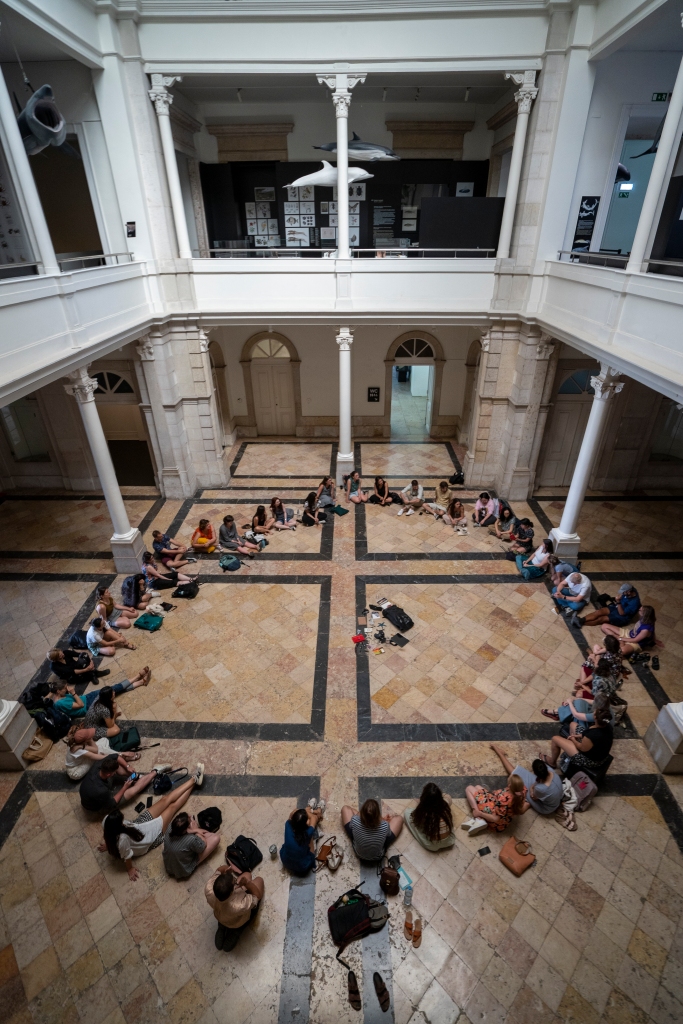
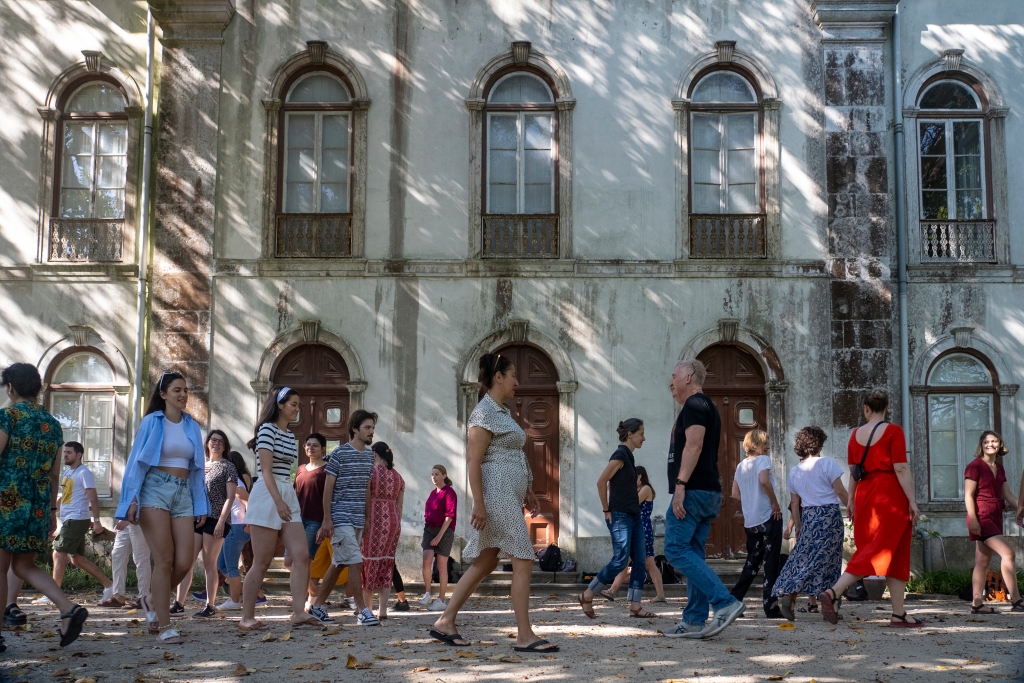
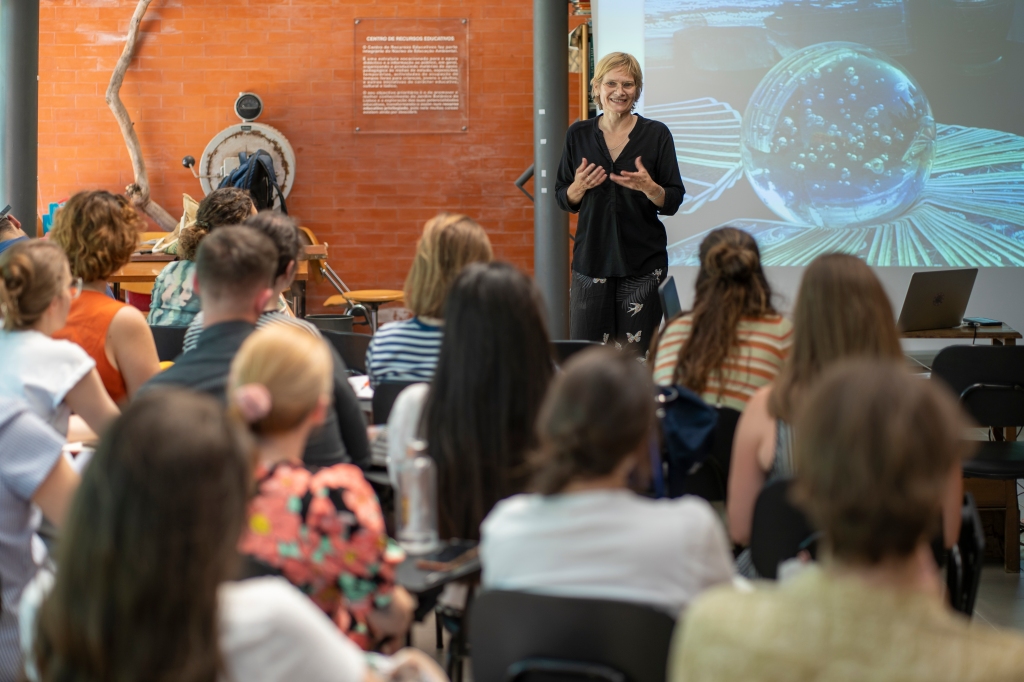
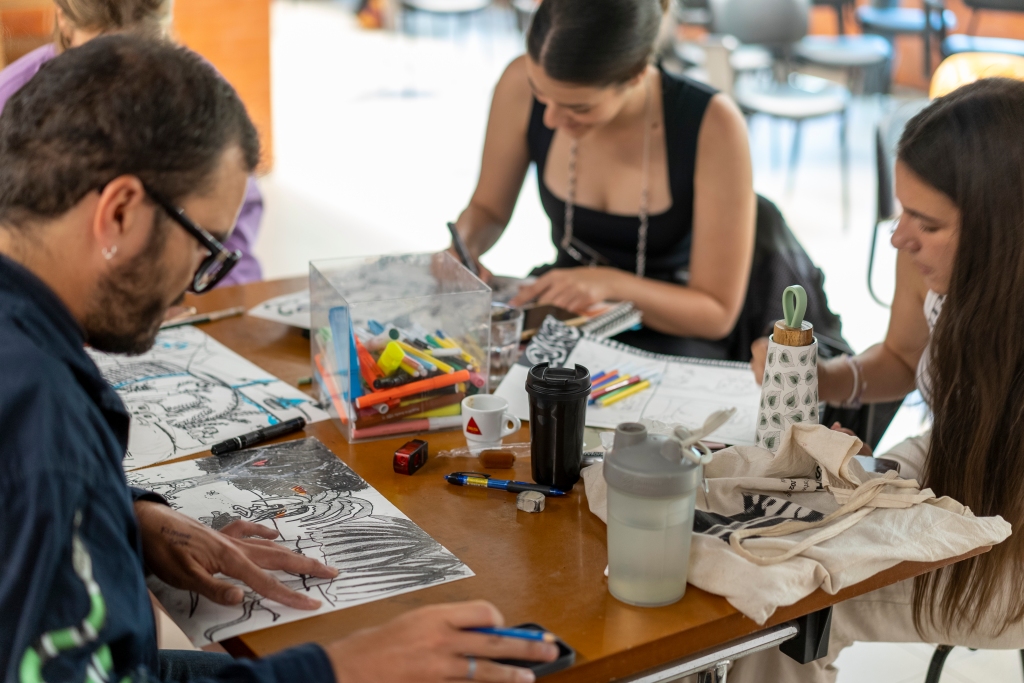
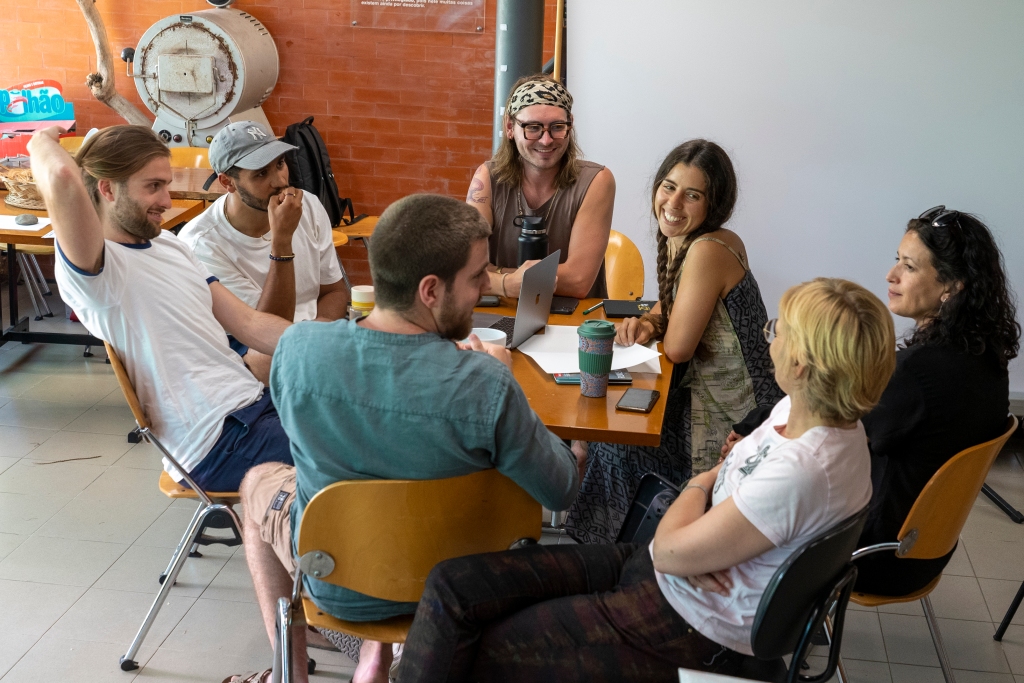
The summer school program involved creative exploratory methods such as futures thinking and emerging concepts, including kinship with the non-human world and nature-based solutions. It provided spaces to learn and explore urban futures through the senses as the senses offer a way to tap into embodied knowledge. To ground imaginations in spatial reality as well as bring forth practical future visions, time travelers were guided through Lisbon city focusing on auditory, visual, or taste and smell senses.
To tap into embodied knowledge and body wisdom, every morning, the course started with an embodiment session in the Botanical Garden. Participants were invited to engage in movement exercises informed by Interplay, a play-based, dance-based movement practice. Beginning with exercises, such as walking, stopping, and running, becoming aware of the space around oneself, each day the movement exercises became more complex. A hand dance and individual movements grew into a group dance on behalf of a poem. With each day participants became more expressive in their movements, in tune and connected with other participants and the natural elements, seemingly moving more and more together as a whole.
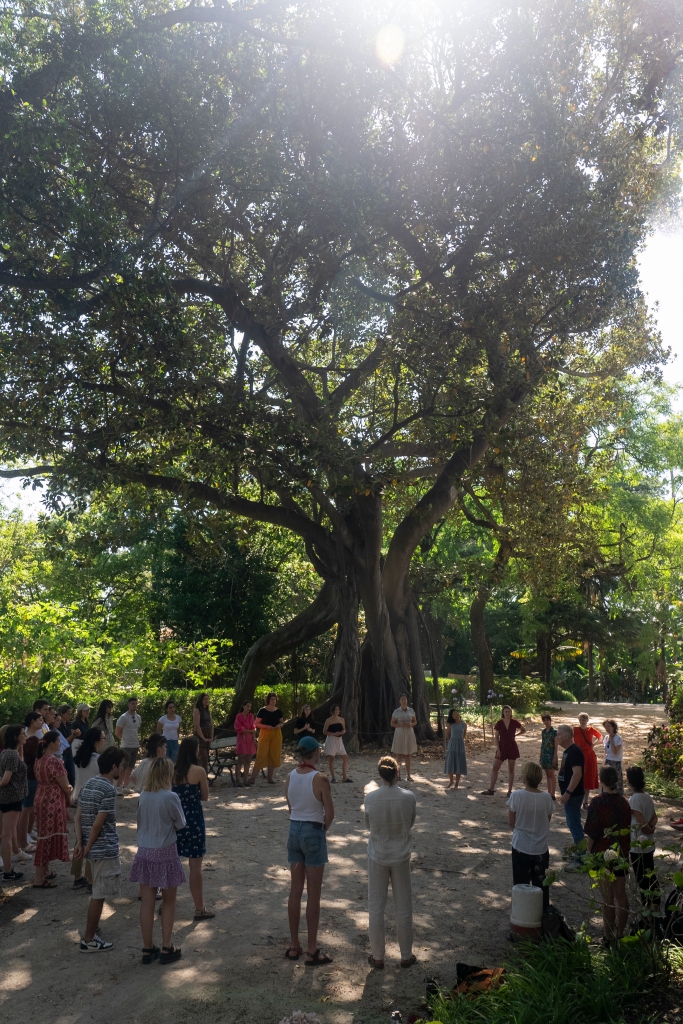
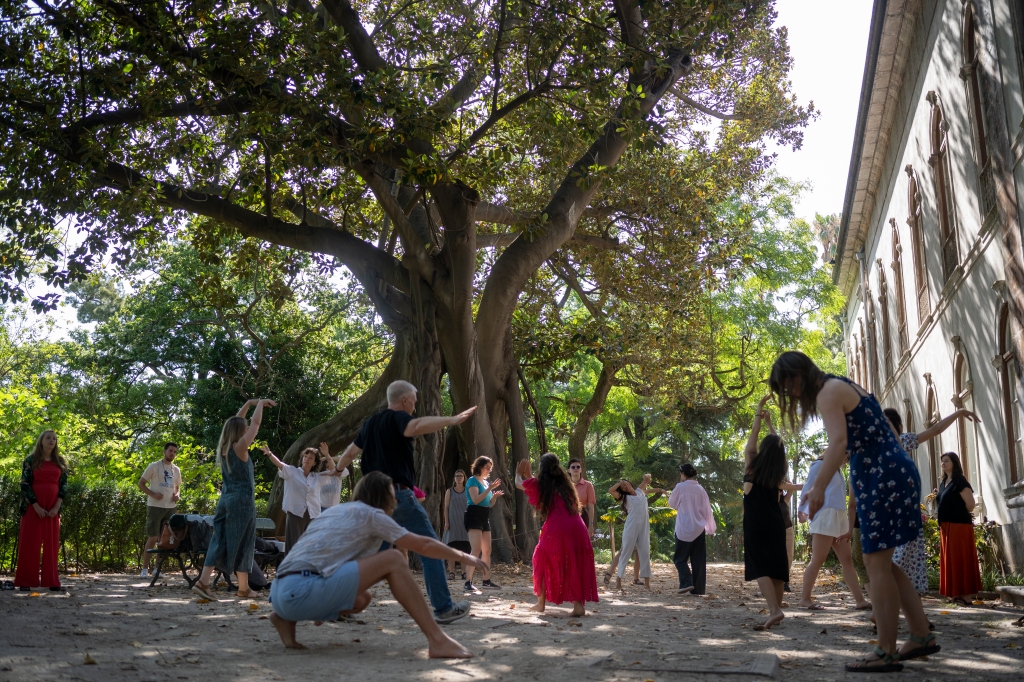
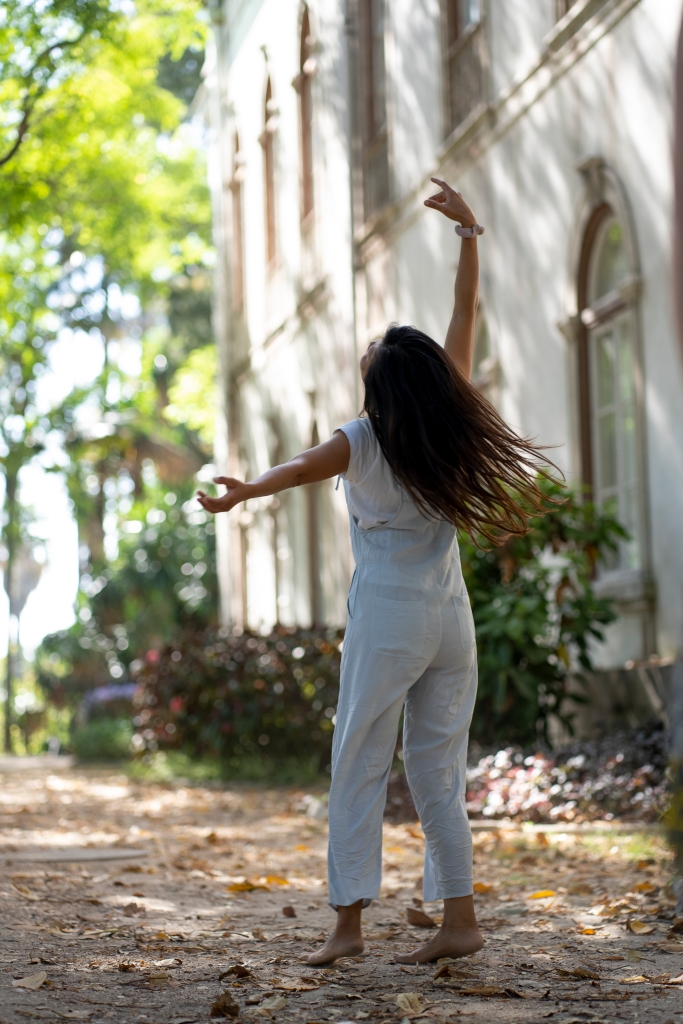
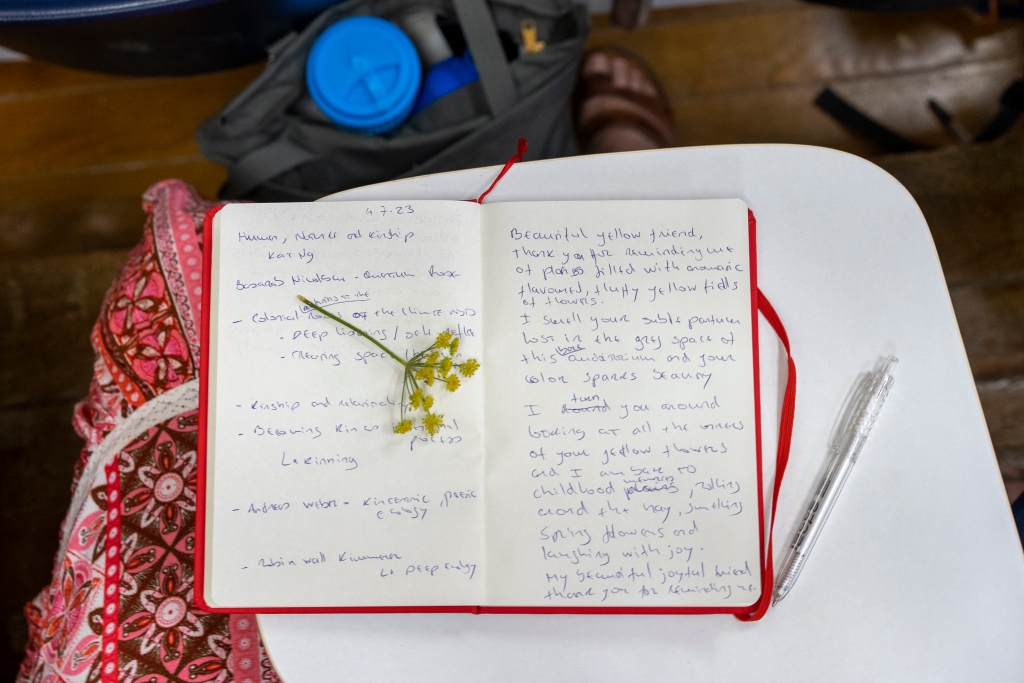
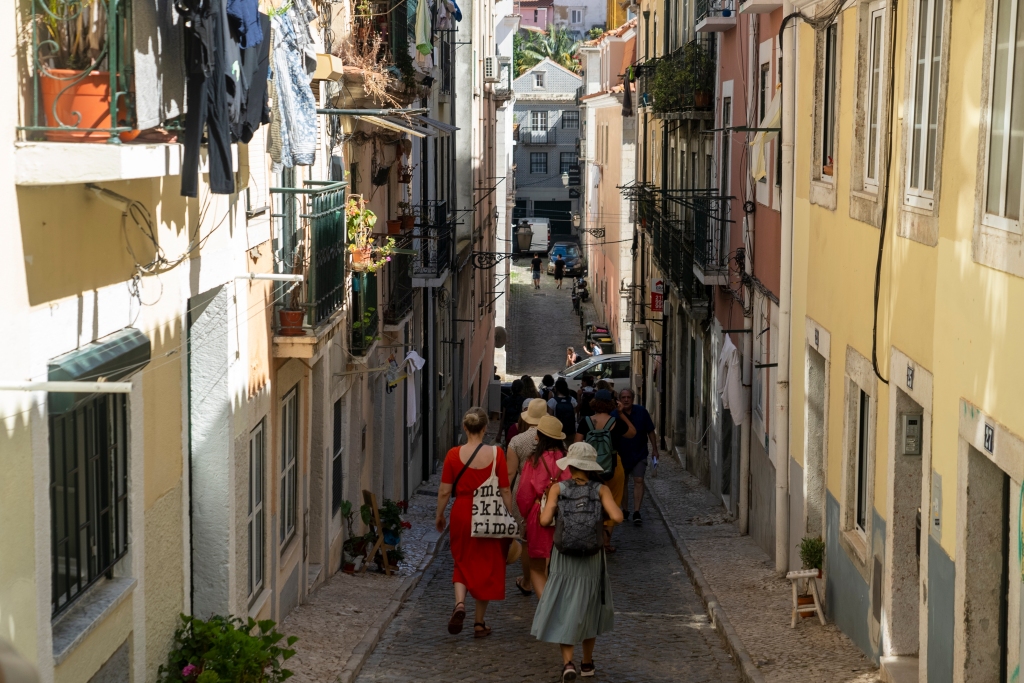
On the last day, participants presented their regenerative urban design proposals for different locations in Lisbon in groups. The presentations involved performances, storytelling, poems, design approaches and visual art and centered around the principles and values of kincentric futures, wellbeing, care, community, utopias, transformation and heritage. Coming from very diverse backgrounds in terms of disciplines and geographical background the participants had brought different forms of knowledge and experience to their working groups.
Julia Bentz
Photos by Bram Goots
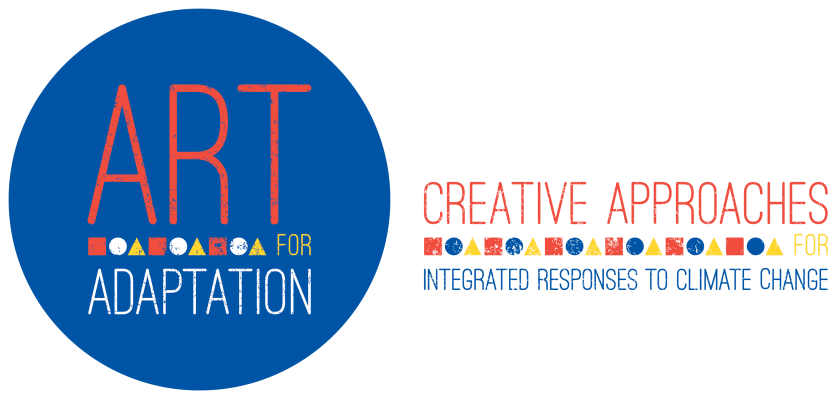
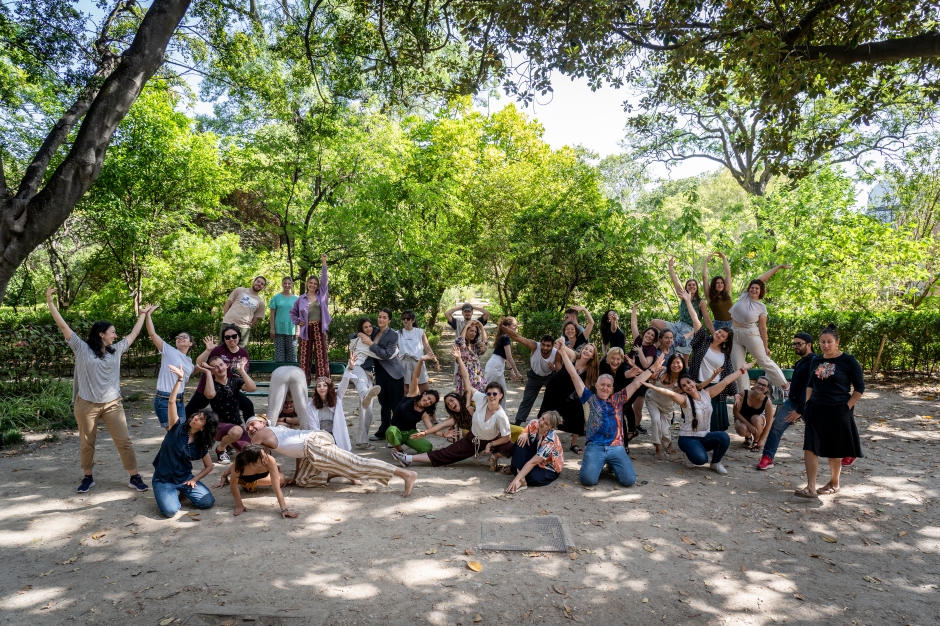

























You must be logged in to post a comment.